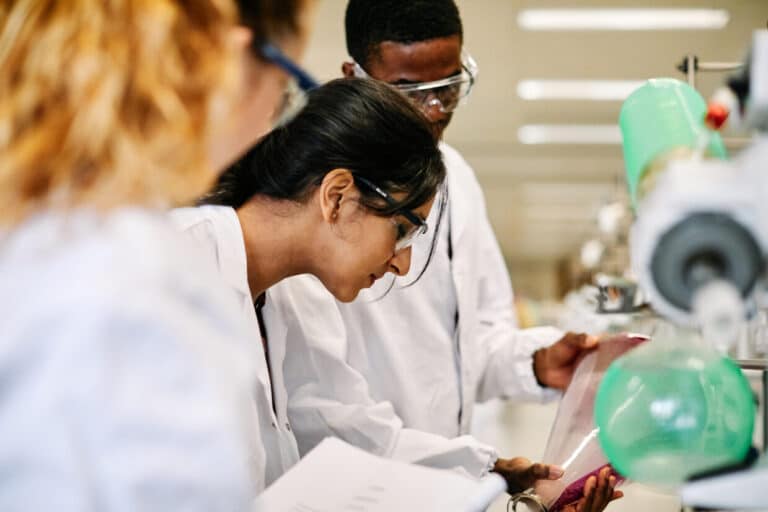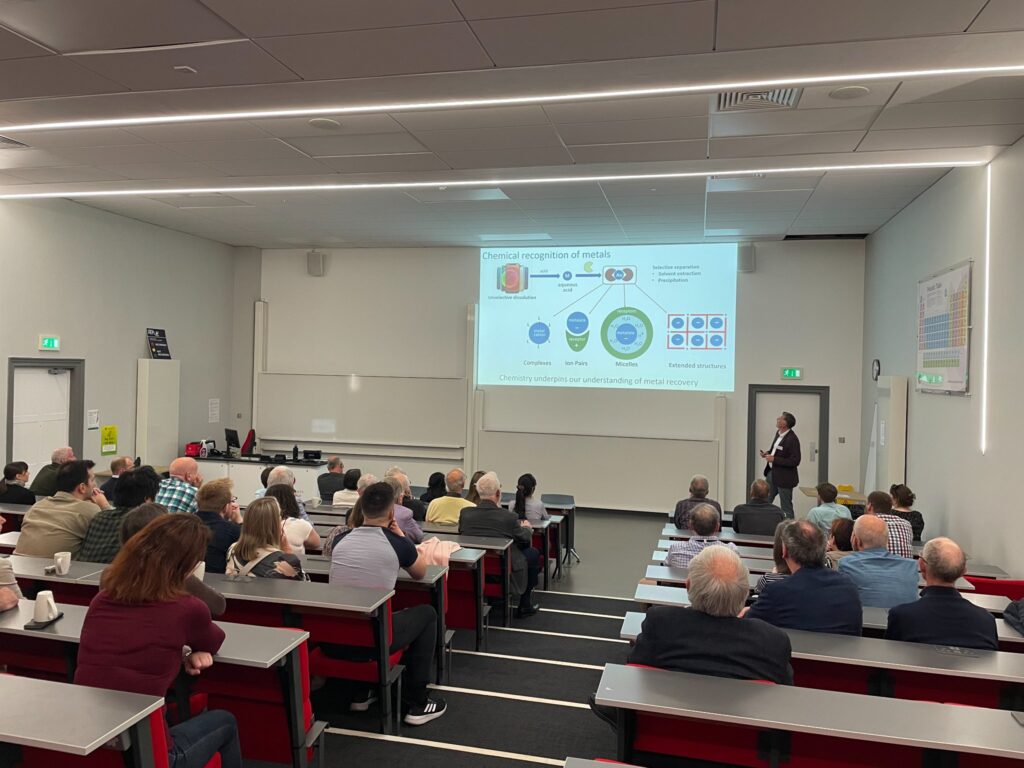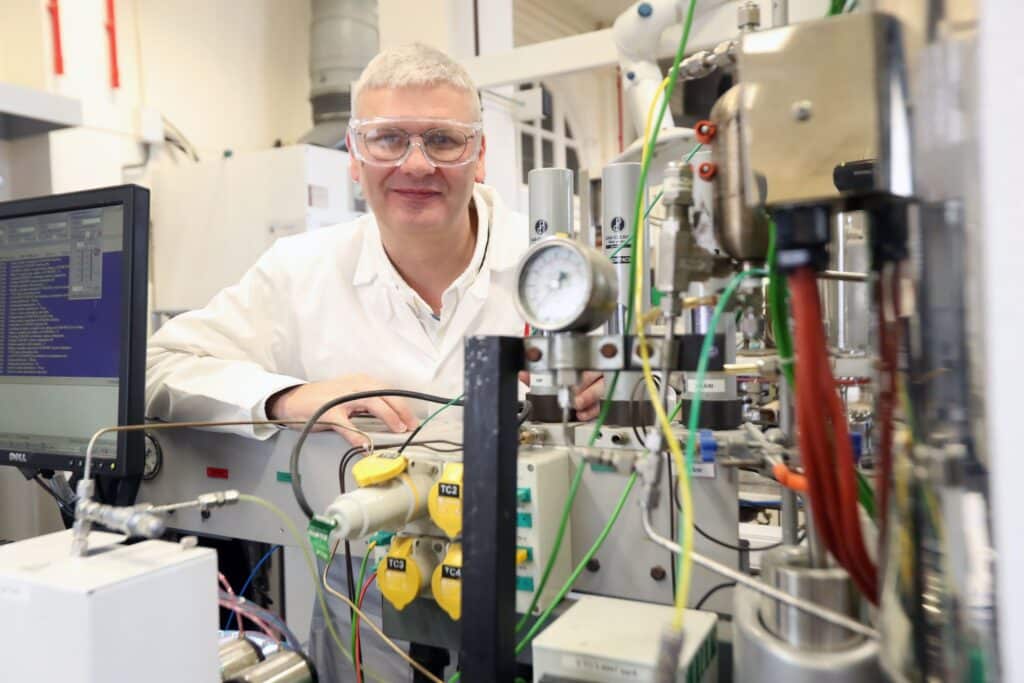This website uses cookies so that we can provide you with the best user experience possible. Cookie information is stored in your browser and performs functions such as recognising you when you return to our website and helping our team to understand which sections of the website you find most interesting and useful.

Chemicals are handled, stored, and transported daily through land, air and sea. Its uses span from the most noble (for example, medicines) to the most destructive (as weapons).
Yet, scientists estimate that they’ve only determined maybe 1% of the universe’s billions of possible chemicals. With so much still unknown, it’s not enough that scientists work with what they have now. The world needs more chemists as there is much still to discover, such as cures for emerging diseases and effective ways to tackle climate change.
The best universities have dedicated themselves to nurturing chemistry students and preparing them to tackle some of humanity’s greatest challenges. World-changing innovations, revolutionary technologies, and passionate minds will be required — and these three universities in Europe are up to the task:
Trinity College Dublin
Trinity College Dublin, Ireland’s top university and part of the world’s top 100 universities, is a great place to study chemistry. The School of Chemistry offers an Honours degree in Chemical Sciences, which equips students with the relevant skills and knowledge to open doors across many fields including research, industry, education, medicine, finance and more. Transferable skills further enhance your employability, meaning Trinity consistently ranks highly for employability across Europe and the world.
This degree is ideal for those eager to study chemistry beyond high school. Classes are deliberately kept small so students can engage with academic experts to discuss everything from fundamental concepts to state-of-the-art research. You’ll also gain practical scientific knowledge as you work alongside a diverse community. Among them is Prof. Valeria Nicolosi, currently listed on the World’s Best Scientists list and Ireland’s only six-time European Research Council winner for her team’s work on material science.
In your third year, you get to specialise in one of five moderatorships: Chemistry, Chemistry with Biosciences, Chemistry with Molecular Modelling, Medicinal Chemistry and Nanoscience. Chemistry with Molecular Modelling is perfect for those who want to learn how to develop new materials such as batteries or, to model new drug molecules for the pharmaceutical industry. Interested in making drugs safer, more environmentally friendly or more cost effective? Trinity’s Medicinal Chemistry option could be an excellent fit for you, focusing on the design of new drugs and how they interact with the body. Alternatively, try nanoscience which explores the world of nano materials. From your phone to your smartwatch, the nanoscientists have it covered.
As part of your third year programme, you can take part in Trinity’s Electives and experience another culture or develop insights into another field. In fourth year, Trinity students undertake an independent research project which can be completed at one of their many global partner universities.
With so many options, Trinity’s chemical sciences programme makes for a diverse, vibrant, and specialised education — and one that’s led by a school that has an Athena Swan Silver Award, a recognition of the progress it’s made towards gender equality.
Interested in joining Trinity but do not meet the entry requirements yet? Consider joining the international foundation programme first.

A chemistry degree from the University of Edinburgh provides the fundamentals needed to go to the frontiers of current research. Source: The University of Edinburgh
The University of Edinburgh
The School of Chemistry at the University of Edinburgh offers six programmes accredited by the Royal Society of Chemistry: BSc Chemistry, MChem Chemistry, BSc Medicinal and Biological Chemistry, MChem Medicinal and Biological Chemistry, BSc Chemical Physics, and MChemPhys Chemical Physics.
The four-year BSc Chemistry aims to equip students with the knowledge, skills, and confidence needed to make an impact with high-quality research, addressing new and emerging global challenges of our time. Students will be taught in physical lectures and laboratory classes, and attend problem-solving workshops for tutorials with a large staff-to-student ratio.
The early years of the programme will have students focusing on chemistry and mathematics. They can explore optional courses in Year 2 and Year 4, maintaining options to transfer to alternative degrees within science and engineering. In their final year of the programme, students take on either an in-depth individual research project or a final-year science education project and placement, which help boost their career opportunities.
Most of Edinburgh’s chemistry graduates find careers in chemical or pharmaceutical companies. However, thanks to the programme teaching more than just chemistry, those who choose a different career path can use their numerical, problem-solving and analytical skills in different sectors, such as business, banking, accountancy and more.

Students at the School of Chemistry at Cardiff University thrive in well-equipped teaching and research facilities. Source: Cardiff University
Cardiff University
Cardiff University’s School of Chemistry is a leading school with a clear mission – to tackle the scientific challenges of the 21st century. Teaching staff actively research ways to deal with society’s pressing issues, from biofuels and clean water to developing new pharmaceuticals. Students form a flourishing community, representing a wide range of nationalities and cultures from around the world who share a common interest in the school’s chemistry programmes.
The school offers programmes for undergraduates and postgraduates, and even additional research programmes for students interested in working alongside leading researchers. Undergraduate programmes are split into two schemes – BSc Chemistry programmes that provide broad coverage of chemistry knowledge, and MChem Chemistry courses that focus more in-depth on selected areas and develop a higher level of understanding. Both offer students the opportunity to spend a year in the industry, with the MChem scheme opening doors for students to join an overseas university research laboratory.
Opportunities for students don’t just stop here. The school dedicates a portion of their time to outreach events – students and staff alike share their research with society to provide valuable materials for teachers, and to inspire the young scientists of tomorrow. Activities include public lectures, creating e-learning resources like Chemistry Captured and Chemistry in the 3rd Dimension, and teaching chemistry experiments to primary school students.
*Some of the schools featured in this article are commercial partners of Study International








